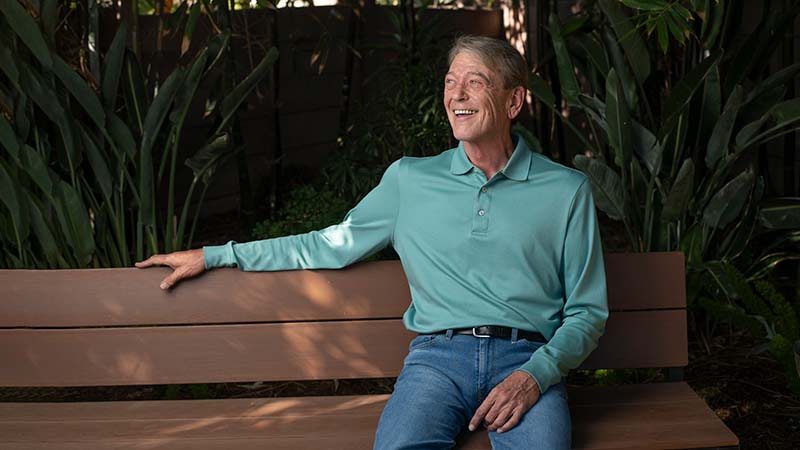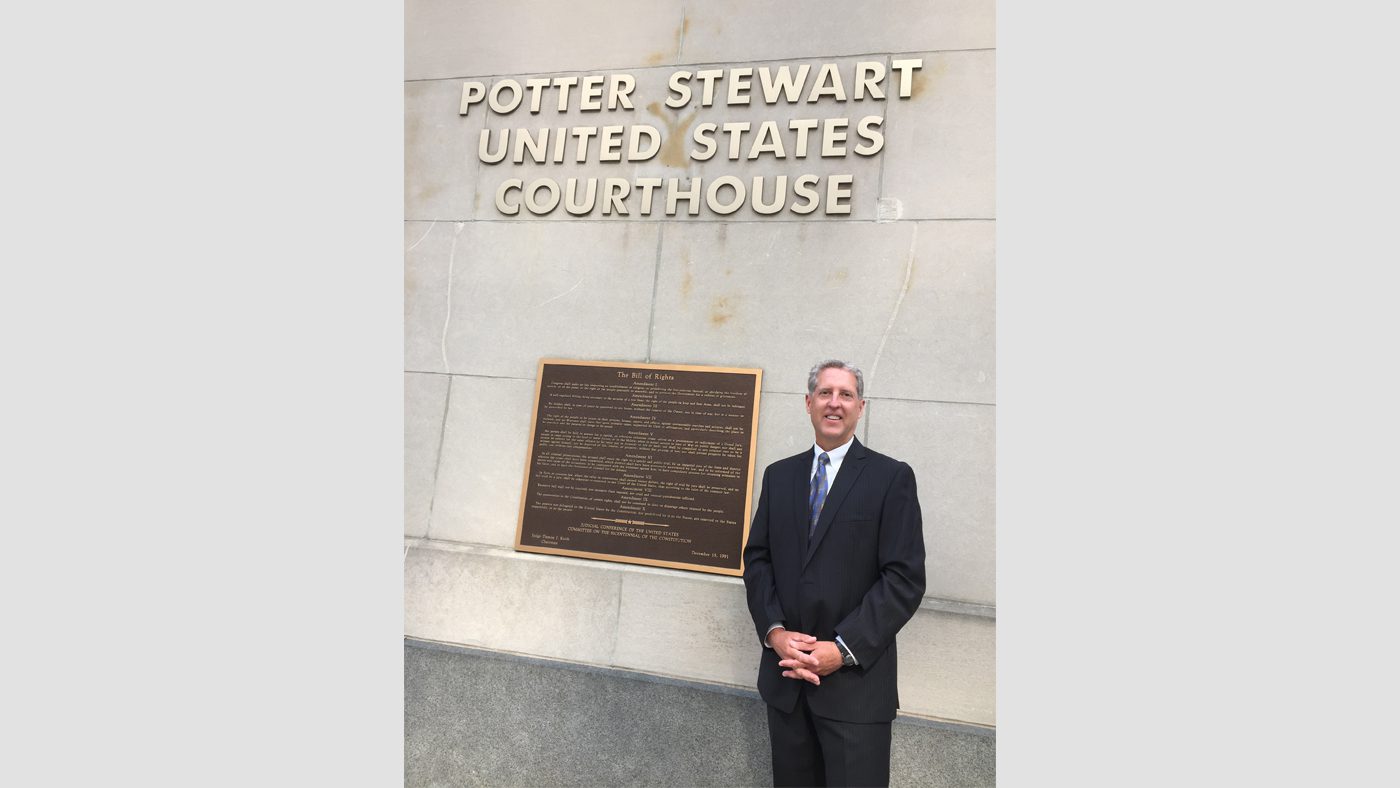
David Lepo, M.U.P. ’78, wants all college students to have the educational opportunities he had – to that end, he’s pledged $1.35 million to the University of Michigan’s Taubman College of Architecture and Urban Planning to support future leaders in the field of urban and regional planning. The planned gift builds on the David A. Lepo Urban Planning Scholarship Fund, which he established in January 2022.
“I had all the benefits and opportunities anybody could have; a lot of those had to do with the University of Michigan and Taubman College,” says Lepo. “That’s why I started donating yearly and then established the scholarship.”
The named scholarship fund supports students with demonstrated financial need in the Master of Urban and Regional Planning program. It also gives preference to students from Ohio, where Lepo grew up. He recognizes that having a diverse population of practitioners with critical thinking skills honed at an institution like Taubman College helps ensure that the profession of urban planning promotes a just and sustainable future.
“I’ve had a very fortunate life, and that includes the opportunity to attend Taubman College. Some people don’t have as easy a way as I did. I was very fortunate. I was an out-of-state student and could still afford to go to Michigan. I want everybody to have that chance because there’s no reason not to allow everybody to rise to their best,” says Lepo.
Before his retirement, Lepo served as the planning director for Newport Beach, California. Throughout his career, he also worked for the cities of Los Alamitos, Signal Hill, and Bellflower, all in California. He became known for his customer service, analytical thinking, and problem-solving expertise. His Taubman College education helped him develop those skills and valuable professional connections. He built a successful career upon that foundation, allowing him to shape and improve the cities where he worked.
When Lepo started work in Signal Hill, California, in 1988, it was an area with beautiful topography filled with oil derricks, automobile wrecking yards, and oil servicing yards. He oversaw projects focused on economic development, environmental cleanup, and diversifying from oil. Thanks in part to Lepo’s work, Signal Hill is now a thriving and economically diverse community and the hilltop, once called “porcupine hill” because of the old-fashioned wooden oil derricks that populated it, is now a residential area full of homes with beautiful views.
“Planners play a vital role in helping our society make the changes we need to thrive,” says Taubman College Dean Jonathan Massey. “This includes reclaiming sites of fossil fuel extraction for cleaner and more sustainable jobs and communities, as David did in Signal Hill. His career exemplifies the power of urban planners to improve lives and create better cities. We thank David for demonstrating the power of planning, and for making a Taubman College education available to future generations so that they, too, can build better futures.”
After a prosperous career, Lepo is enjoying retirement and using what he’s earned to ensure more students have the financial support they need to get a Taubman College education and go on to make an impact on cities throughout the world.
“My family is comfortable. I’m comfortable. Anything that’s not for current living expenses, what do I do with it? I give to other charities, but I don’t have the connection to them that I do to Taubman College. That’s what made Taubman the ideal choice. It’s also a legacy for me. My name is going to be somewhere as long as there’s a University of Michigan,” he says. “And it’s easy. I can’t be the only one in my position. I’m not so outstanding that there aren’t more people from my class or the classes before or after that can’t do what I’m doing.”
Lepo’s legacy will help students build the foundation they need to be successful for a long time to come. He’s confident that cities throughout the country and around the world will benefit from more Taubman College-trained planners. And, when those planners are his age, Lepo wants them to consider paying it forward. “I hope, when they’re old and comfortable, they’ll do what I’m doing and give back,” he says.






